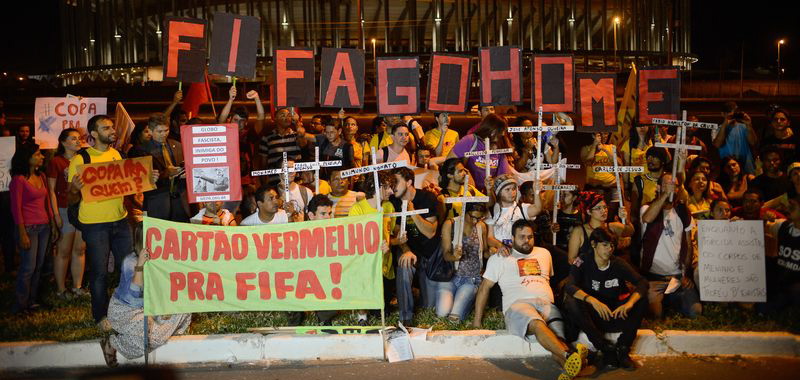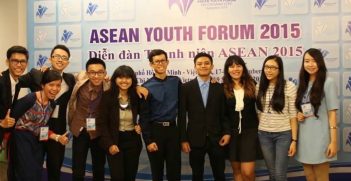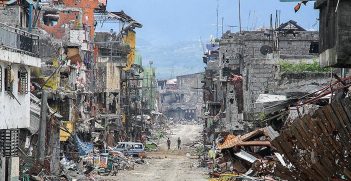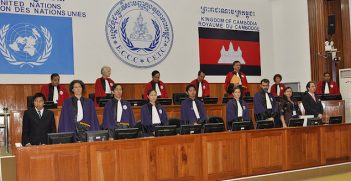Everyone Wants the World Cup – Except Brazilians

As the most-watched tournament in the world begins, domestic tensions have cast doubts on whether Brazil will be able to stage a peaceful World Cup.
Usually the host nations of international sporting competitions – be they the Olympics, Commonwealth Games or FIFA World Cup – are happy to capitalise on the revenue, tourism and interest that the world temporarily provides. Sydney attracted booming interest due to the 2000 Olympics and the 2002 FIFA World Cup co-host South Korea was undoubtedly able to put Asia on the soccer map finishing in fourth place (the highest ever for an Asian nation). But Brazil, already attracting millions of tourists and having collected an array of World Cup trophies, will be demonstrating something else to the world: its internal troubles.
Public Discontent
Brazil’s domestic tensions are beginning to simmer at the worst possible time. Recently demonstrators protesting against the FIFA event and the nation’s excessive funding debilitated the capital’s subway system leaving over 4 million passengers stranded. And worse is to come, for as well as transport dislocation, Brazil has seen some of its largest demonstrations in decades and there is widespread concern about the excessive force used by the police to contain these incidents.
These and other problems threaten Brazil’s opportunity to demonstrate its proud soccer tradition to the world. Some of the difficulties have natural causes, such as dengue fever and persistent drought which threatens power blackouts. Others, such as the failure to complete venues on time, have been brought on by human involvement. But the inability to expedite construction and the increasing protests are only the surface of Brazil’s challenges. Lurking beneath are issues like gang violence, forced eviction and increasing socio-economic disparity. Australia’s Department of Foreign Affairs and Trade has warned travellers to exercise a high degree of caution in the lead up to the World Cup with specific mentions of the rising levels of violence and kidnappings. Brazil’s own sport minister Aldo Rebelo, while trying to explain that Brazil was not a warzone like Iraq, admitted the serious security concerns that face the nation.
Sports and Politics
What is supposed to be an international tournament promoting competition, sportsmanship and peace may instead direct the attention of 32 nations to Brazil’s domestic turmoil. History has demonstrated how world sport often collides with domestic and international political problems. Munich in 1972 witnessed the tragic attack on Israeli athletes, prompting the USSR and USA to stage reciprocal boycotts of the 1976 and 1980 Olympics. In 1978 Argentina hosted the FIFA World Cup despite having been roundly condemned for a military coup two years earlier. More recent examples prove equally insightful. Greece was able to pull off the 2004 Olympics struggling to the very last days to complete construction. But whatever joy ensured was soon dissipated as the nation resumed its state of economic turmoil. China hosted the 2008 Olympics as the global financial crisis loomed and whilst the attention towards its own economic ascension alarmed the West, it demonstrated how it could compete in both the economic and sporting realm despite its non-democratic government. Recently Russia staged a relatively successful Winter Olympics (notwithstanding Putin’s remarks about homosexuals) but within weeks entered the Ukraine to initiate the significant political standoff that has reduced the G8 to the G7.
Hopefully Brazil can host a peaceful tournament, but its internal problems will remain. Should there be a repeat of the country’s 2013 riots, the most watched tournament in the world would be a global platform for communicating Brazil’s problems to the world.
Dominic Meoli is an Intern with AIIA NSW.





